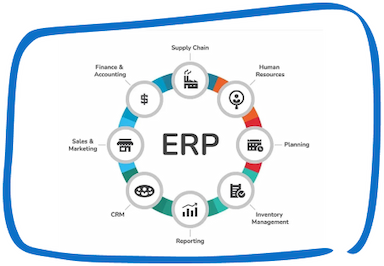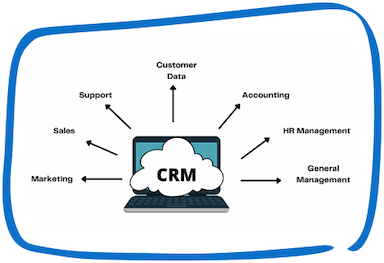Financial statements play a critical role in providing insights into the financial health and performance of an organization. They are essential tools that enable businesses to assess their profitability, liquidity, and overall financial stability. In this blog post, we will explore the significance of financial statements, the key components, and how the usage of accounting software can simplify the process of generating accurate and comprehensive financial records.
As a matter of fact, any organization must have financial statements. Based on historical costs, the balance sheet shows how much the company’s assets and liabilities are worth. Investors and lenders can learn from the income statement how profitably and effectively the business operated during the accounting period. The cash flow statements certainly provide information on the sources and uses of money for investing, operating, and financing operations. Insiders of the company, lenders, bonding companies, and other stakeholders should all be aware of this information.
Understanding Financial Statements
Financial statements are formal records that represent the financial position and activities of an organization. They provide a snapshot of its financial performance over a specific period and assist in evaluating its financial health. The primary financial statements include:
- Balance Sheet: The balance sheet presents the organization’s assets, liabilities, and equity at a given point in time. It showcases the financial position by illustrating what the organization owns and owes.
- Income Statement: Also known as the profit and loss statement, the income statement highlights the revenues, expenses, gains, and losses incurred during a specific period. It helps determine the organization’s profitability.
- Cash Flow Statement: The cash flow statement tracks the inflow and outflow of cash from operating activities, investing activities, and financing activities. Consequently, it showcases the organization’s ability to generate cash and manage its cash resources.
Importance of Financial Statements
Financial statements are crucial for several reasons:
- Decision-making: Financial statements offer vital data for decision-making and both internally and externally. They assist management in evaluating financial performance, identifying areas for improvement, and making informed business decisions.
- Investor Confidence: Furthermore, Investors rely on financial statements to assess the financial stability and growth potential of an organization. Accurate and transparent accounting records increase investor confidence and attract potential investors.
- Creditworthiness: Financial statements are essential for organizations seeking loans or credit. Lenders analyze these statements to evaluate the creditworthiness and repayment capacity of the organization.
- Compliance: Financial statements are often required for regulatory compliance. Government agencies, tax authorities, and other stakeholders request financial statements to ensure compliance with accounting and reporting standards.
Simplifying Financial Statements with Accounting Software:
Accounting software has revolutionized the process of preparing financial statements. Here’s how it simplifies the task:
- Automated Data Entry: Accounting software eliminates the need for manual data entry by automating the process. It can seamlessly integrate with other financial systems, such as bank accounts and payroll, to gather transactional data accurately.
- Accurate Calculations: Accounting software performs automatic calculations, reducing the risk of human errors in financial statements. It calculates totals, subtotals, and other financial ratios, ensuring accuracy and reliability.
- Real-Time Updates: With accounting software, you can generate financial statements on the go. As transactions are entered into the system, the software updates the financial statements accordingly. This allows businesses to have up-to-date financial information at any given moment.
- Customization and Analysis: Accounting software provides the flexibility to customize financial statements based on specific requirements. It allows users to create reports, charts, and graphs to analyze financial data effectively. This enables organizations to gain valuable insights and make data-driven decisions.
- Collaboration and Accessibility: Accounting software enables multiple users to access financial statements simultaneously. It facilitates collaboration between accountants, auditors, and stakeholders, ensuring transparency and effective communication.
Guidelines to follow while preparing Financial Statements
When preparing financial statements for any organization, bookkeepers should keep the following guidelines in mind:
- Maintain accuracy and completeness: Ensure that all financial data is accurately recorded and classified in the appropriate accounts. Double-check calculations, reconcile accounts, and verify the accuracy of supporting documentation.
- Follow accounting standards and regulations: Adhere to relevant accounting standards such as Generally Accepted Accounting Principles (GAAP) or International Financial Reporting Standards (IFRS). Comply with legal and regulatory requirements specific to the organization’s industry or jurisdiction.
- Consistency in accounting methods: Apply consistent accounting methods and policies throughout the financial statements to ensure comparability and reliability.
- Use clear and concise language: Present financial information in a clear and easily understandable manner. Avoid technical jargon or complex terminology that may confuse stakeholders.
- Provide adequate disclosures: Include necessary disclosures and footnotes to explain significant accounting policies, contingencies, and other relevant information that may impact the interpretation of financial statements.
- Reconcile balances: Ensure that balances reported in the financial statements are reconciled with supporting schedules, subsidiary ledgers, and other source documents.
- Seek professional guidance if needed: Consult with accounting professionals or seek guidance from relevant authorities when facing complex accounting issues or when there is a need for interpretation of accounting standards.
- Regularly review and analyze financial statements: Continuously review accounting records to identify trends, anomalies, or potential errors. Analyze key financial ratios and metrics to gain insights into the organization’s financial health and performance.
By adhering to these guidelines, bookkeepers can help ensure the accuracy, transparency, and reliability of financial records for any organization.
Wrapping Up
Financial statements are indispensable for organizations of all sizes. They provide crucial information for decision-making, attract investors, assess creditworthiness, and ensure regulatory compliance. With the advent of accounting software, the process of generating financial statements has become more streamlined, accurate, and efficient. By automating data entry, ensuring accurate calculations, and offering customization options, accounting software simplifies the task of creating comprehensive and reliable financial records. Thus, embracing accounting software empowers organizations to manage their finances effectively, gain a competitive edge, and make informed strategic decisions.
Choose the Right Accounting Software for Your Business
Taking charge of your finances is crucial if you want to direct the expansion and safety of your business. The ability to employ cloud-based financial reporting software to identify the most effective business tactics makes it vital. Insightful financial reports can help you locate the information you need to reach your objectives, whether you’re trying to cut costs, expand operations, or take on new chances.
However, this issue is resolved by Elate Accounting software’s timesheets, which keep track of the number of hours worked and turn approved time entries into invoices. Elate Accounting App also aids with inventory management, bank account reconciliation, and maintaining tax compliance. Finally, using the Elate accounting system allows you to generate reports automatically, analyze report data, and direct your organization. Every phase of your business involves accounting, and a solid accounting system like Elate Accounting Solution is available to assist you at each stage.
Speak with Our Team!
4.9 Stars
1k+ reviews on






